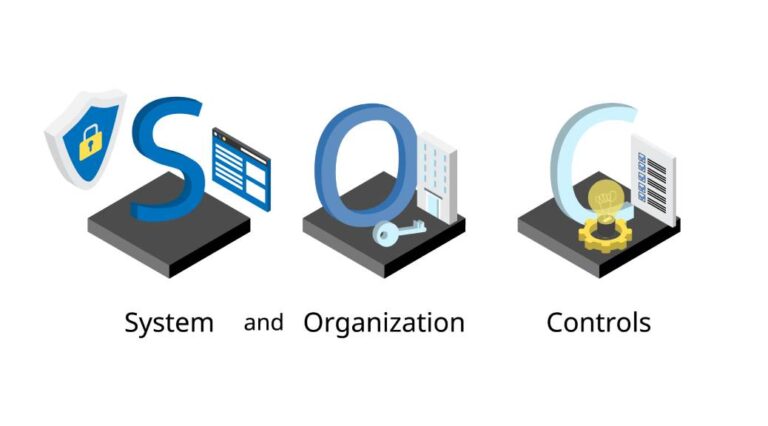Boston is a growing financial hub, with banks, investment firms, credit unions, and fintech startups thriving across the city. But as the industry grows, so do cyber threats. From data breaches to ransomware attacks, financial institutions in Boston face immense pressure to secure sensitive data, meet compliance standards, and protect their reputations.
This blog explores key cybersecurity best practices tailored specifically for financial firms operating in Boston. We’ll also touch on regional compliance expectations and how you can stay protected in today’s evolving threat landscape.
Why Cybersecurity Matters More Than Ever in Boston
With its concentration of high-value financial institutions, Boston is an attractive target for cybercriminals. These organizations often handle large volumes of sensitive personal and financial data—making them prime targets for phishing, ransomware, and insider threats.
Even a single breach can result in lost trust, regulatory scrutiny, financial penalties, and long-term brand damage. Today, cybersecurity is not just a technical requirement—it’s a critical business priority.
Understanding Compliance for Boston-Based Financial Firms
In addition to national financial regulations, businesses operating in Boston are expected to meet stringent data privacy and protection standards. These often involve:
- Having a formal written information security plan
- Training employees regularly on security practices
- Using encryption to protect sensitive data
- Reporting breaches in a timely and transparent manner
Even though the specific rules may vary by institution type or regulator, the common thread is clear: firms must prove they’re taking cybersecurity seriously and proactively managing risks.
Know More About Our Microsoft 365 and Consulting Services
Common Cybersecurity Threats Targeting Financial Services
Here are the key threats Boston-based financial institutions should be actively preparing for:
1) Phishing and Business Email Compromise
Fraudsters frequently use emails that appear to come from trusted sources to trick employees into revealing credentials or transferring funds. These attacks are sophisticated and can bypass basic filters if employees are not trained.
2) Ransomware Attacks
Ransomware locks your critical systems and demands payment to restore access. For financial firms that rely on real-time operations, even a few hours of downtime can be costly and damaging.
3) Third-Party Vulnerabilities
Many firms rely on third-party vendors for data processing, IT support, or client communication tools. If those vendors have weak security practices, your firm is exposed through them.
4) Insider Risks
Employees—whether negligent or malicious—can cause data breaches by mishandling information, clicking on unsafe links, or using unauthorized devices.
Best Practices for Cybersecurity in Boston’s Financial Industry
Adopting these practices can help your firm minimize risk, stay compliant, and build trust with clients.
1) Build a Culture of Cyber Awareness
Start with your people. Regularly train employees on password security, phishing awareness, and proper handling of customer data. Your staff is your first line of defense.
2) Develop a Formal Security Policy
Have a written plan that outlines how your firm protects data, responds to incidents, and manages risks. This document should be reviewed and updated regularly.
3) Use Multi Factor Authentication (MFA)
Passwords alone aren’t enough. MFA requires users to verify their identity using two or more methods, significantly reducing the risk of unauthorized access.
4) Encrypt and Back Up Data
All sensitive financial data should be encrypted both in storage and during transmission. Maintain regular backups in secure, off-site locations so that data can be restored quickly if needed.
5) Perform Regular Risk Assessments
Run routine audits and penetration tests to find and fix vulnerabilities before attackers do. These assessments help you stay ahead of evolving threats.
6) Evaluate Your Vendors
Review the security posture of all third-party vendors. Require them to follow industry best practices and sign agreements that hold them accountable for protecting your data.
7) Have a Clear Incident Response Plan
When an incident occurs, speed matters. Your plan should cover how to contain the breach, notify stakeholders, restore operations, and report to the proper authorities if required.
Local Support Can Make All the Difference
Working with a local IT services provider can provide the specialized support your firm needs. Boston-based providers often have deeper insight into regional regulations and industry dynamics, making them better equipped to build a customized cybersecurity strategy for your business.
From real-time monitoring to regulatory reporting, a trusted partner can:
- Strengthen your security architecture
- Monitor for threats 24/7
- Offer rapid response in the event of an incident
- Provide audit-ready documentation
- Help you scale your cybersecurity as your firm grows
Choose a provider with experience in supporting financial institutions and a strong reputation in the Boston area.
Final Thoughts
For Boston’s financial services firms, cybersecurity is not just a technical issue—it’s a business imperative. By adopting a proactive security strategy and staying aligned with both industry best practices and regional expectations, you can protect your clients, your data, and your reputation.
Now is the time to act. Waiting until a breach occurs is no longer an option.
Frequently Asked Questions
-
Why is Boston considered a high-risk area for cyber threats?
As a financial and technology hub, Boston is home to many institutions that handle sensitive data—making it a target for sophisticated attacks.
-
What is the most important cybersecurity step we should take?
Building employee awareness is critical. Even the best technology can fail if users are not trained to spot threats.
-
How often should cybersecurity policies be reviewed?
At least annually, or whenever there are major changes to your systems, compliance rules, or threat landscape.
-
Should smaller firms also invest in cybersecurity?
Absolutely. Smaller financial firms are often targeted because they may lack
advanced security infrastructure, making them easier to breach. -
Can we outsource cybersecurity management?
Yes, many firms choose to work with local managed service providers to get expert guidance and round-the-clock protection.
If you’re a financial services firm in Boston looking to upgrade your cybersecurity posture, partnering with a local expert can help you stay protected and compliant.
Ready to take the next step? Our team at TrnDigital helps financial institutions like yours build smarter, stronger, and more secure IT environments.
Let’s secure your future—starting today.




